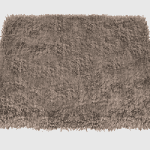Worldwide of sporting activities nutrition, couple of supplements have actually gained such a lasting online reputation as Branched-Chain Amino Acids (BCAAs). Whether you are an elite athlete or somebody concentrated on healthy and balanced aging, BCAAs can play an important duty in maintaining muscle health and wellness and boosting recuperation. BCAA supplementation and recovery are closely linked, with research studies showing advantages that prolong across various phases of life. This post explores the features of BCAAs, their science-backed advantages, and how best to use them in your fitness trip.
What Are BCAAs?
BCAAs, or Branched-Chain Amino Acids, include 3 essential amino acids: leucine, isoleucine, and valine. These amino acids are described “vital” because the body can not create them by itself. Instead, they must be acquired from dietary sources or supplements.
What collections BCAAs aside from various other amino acids is their special metabolic path. Unlike most amino acids that are metabolized in the liver, BCAAs are largely metabolized in muscle tissue. This quality makes them especially useful for sustaining muscle mass recovery and growth during and after physical activity.
The Big Three: Leucine, Isoleucine, and Valine
Leucine
Leucine plays a critical role in activating the mTOR pathway, a crucial driver of muscular tissue protein synthesis. It is commonly considered one of the most effective of the 3 BCAAs in terms of advertising muscle development.
Isoleucine
While less potent than leucine in promoting healthy protein synthesis, isoleucine succeeds at enhancing sugar uptake right into muscular tissue cells. This makes it valuable for sustaining muscle mass throughout workouts.
Valine
Valine contributes to energy manufacturing and aids avoid muscle breakdown throughout exercise. It supports endurance and psychological focus throughout exercise.
A lot of BCAA supplements are formulated in a 2:1:1 or 3:1:1 ratio, preferring leucine as a result of its leading muscle-building impacts.
BCAAs and Muscle Recovery
Decreasing Muscle Mass Pain
One of the primary benefits of BCAA supplementation is decreasing Postponed Start Muscle Discomfort (DOMS). Researches have actually shown that individuals who take BCAAs before and after resistance training report dramatically less muscle mass discomfort compared to those that do not supplement.
Increasing Muscular Tissue Fixing
BCAAs provide vital building blocks for fixing muscle tissue harmed throughout intense exercises. They support a boosted rate of muscular tissue healthy protein synthesis and decrease the rate of protein break down, quickening the recovery procedure and advertising gains in muscle mass.
Reducing Exercise-Induced Fatigue
BCAAs also aid delay tiredness during extended exercises by taking on tryptophan for access into the brain. Tryptophan is a precursor to serotonin, which can cause early exhaustion throughout extended training sessions. By limiting tryptophan uptake, BCAAs can aid you press harder and longer.
BCAAs Throughout the Health Period
For Young Athletes
More youthful professional athletes experiencing rapid growth can benefit from improved recuperation and much better training outcomes with BCAA use. The currently raised rate of muscular tissue protein synthesis in this age group makes them very receptive to supplements.
For Active Grownups
Adults in their 20s to 40s can make use of BCAAs to improve training outcomes, advertise lean muscular tissue retention throughout weight loss phases, and recoup extra successfully from intense exercise. This is specifically helpful throughout caloric deficits when muscle mass conservation becomes a concern.
For Aging Populations
Muscular tissue loss as a result of aging– known as sarcopenia– normally starts around age 40 and increases after 60. This leads to weak point and lowered freedom. BCAAs, especially leucine, aid fight this by getting over “anabolic resistance” and stimulating muscle healthy protein synthesis also in older adults.
One research study released in the American Journal of Professional Nutrition found that leucine-enriched supplements significantly boosted muscle mass protein synthesis in senior participants, highlighting BCAAs’ potential in anti-aging muscle mass methods.
Types of BCAA Supplements
BCAA Powders
These are the most popular and versatile forms, typically readily available in tastes and simple to combine with water. They are fast-absorbing and optimal for pre-, intra-, or post-workout usage.
BCAA Capsules and Tablets
A hassle-free alternative for those who like not to manage powder. Though slower to absorb, they are optimal for travel or quick supplementation on the move.
BCAA-Enriched Protein Powders
Some healthy protein powders consist of added BCAAs to amplify their muscle-building results. This can be an economical means to satisfy both protein and BCAA needs in one product.
BCAA-Infused Ready-to-Drink Beverages
These grab-and-go options provide ease, frequently with added active ingredients like electrolytes or high levels of caffeine to increase exercise efficiency and hydration.
BCAA Gels
Developed mostly for endurance athletes, BCAA gels provide mobile fuel during long-distance events when various other food resources are not practical.
Just How to Enhance BCAA Supplementation
Timing Matters
The anabolic home window– the period right after an exercise– is a vital time for taking BCAAs to support muscular tissue growth. However, consuming them before exercises might additionally help in reducing muscle damage. Preferably, spread your BCAA consumption throughout the day:
- 5– 10 grams before training
- 5– 10 grams after training
- Bonus servings in between meals if your protein intake is low
Dose Guidelines
The recommended everyday dosage of BCAAs varies from 5 to 20 grams, relying on body weight, training strength, and objectives. A starting factor of 0.03– 0.05 g per extra pound of body weight is normal.
Combining with Other Supplements
BCAAs combine well with several various other supplements to boost performance and healing:
- Whey Healthy Protein: Gives a complete amino acid account
- Creatine: Improves strength and power outcome
- Glutamine: May assist with immune function and recovery
- Vitamin D: Sustains muscle wellness and BCAA performance
That Should Consider BCAA Supplementation?
While many people can benefit from BCAAs, they are especially useful for:
- Athletes and bodybuilders focused on efficiency and healing
- People undergoing calorie limitation or fasting
- Older adults seeking to keep or regain muscular tissue mass
- Individuals that have a hard time to meet protein needs through diet plan alone
Verdict
BCAAs are a powerful tool for anyone looking to support muscular tissue growth, enhance recovery, or maintain muscle health and wellness across the life-span. Their adaptability, clinical support, and ease of use make them a go-to supplement for active individuals and aging populations alike. Whether you’re simply beginning your fitness trip or wanting to maximize your present routine, integrating BCAAs could be the secret to much better performance, quicker recuperation, and sustained muscular tissue health and wellness.




 Round Rugs
Round Rugs  Wool Rugs
Wool Rugs  Vintage Rugs
Vintage Rugs 


 Carpet Tiles
Carpet Tiles  Carpet
Carpet 
 Embossed Rug
Embossed Rug  Plain Rug
Plain Rug 
 2.5'*4'
2.5'*4'  2'*3'
2'*3'  3'*5'
3'*5'  5*7.5
5*7.5 













 Artificial Grass
Artificial Grass  Mats
Mats 
 Soil
Soil  Fertilizer
Fertilizer  Pesticides
Pesticides